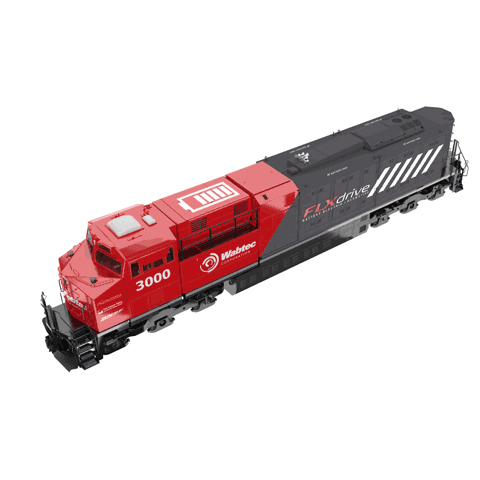Rio Tinto has announced it will purchase four battery-electric trains for use in the Pilbara region of Western Australia as part of the company’s strategy to halve its carbon emissions by 2030.
Rio Tinto purchased the four 7MWh FLXdrive battery-electric locomotives from Wabtec Corporation with production due to commence in the United States in 2023 ahead of initial trials in the Pilbara in early 2024.
It says the locomotives, which will be used to carry ore from the company’s mines to its ports, will be recharged at purpose-built charging stations. They will also be capable of generating additional energy while in transit through a regenerative braking system which takes energy from the train and uses it to recharge the onboard batteries.
A full transition to net zero emissions technology of its entire fleet of rail locomotives would reduce Rio Tinto Iron Ore’s diesel-related carbon emissions in the Pilbara by around 30% annually.
Rio Tinto Managing Director of Port, Rail and Core Services, Richard Cohen said delivery of the prototype locomotives was an important early step for the company on the path toward a decarbonised Pilbara.
“Our partnership with Wabtec is an investment in innovation and an acknowledgement of the need to increase the pace of our decarbonisation efforts,” he said.
“Battery-electric locomotives offer significant potential for emissions reduction in the near term as we seek to reduce our Scope 1 & 2 carbon emissions in the Pilbara by 50 per cent by 2030.”
President of Freight Equipment for Wabtec, Rogerio Mendonca said the FLXdrive was ideally suited to support Rio Tinto’s decarbonisation targets.
“This locomotive provides the power, fuel savings and emissions reductions to cost-effectively run rail networks in the mining industry. The rapid adoption of the FLXdrive by Rio Tinto and other mining operators demonstrates the industry’s commitment to decarbonising their operations.”
Once delivered, the locomotives will be trialled within controlled environments in the Pilbara and tested against a range of safety and functional criteria, including integration with AutoHaul™.


